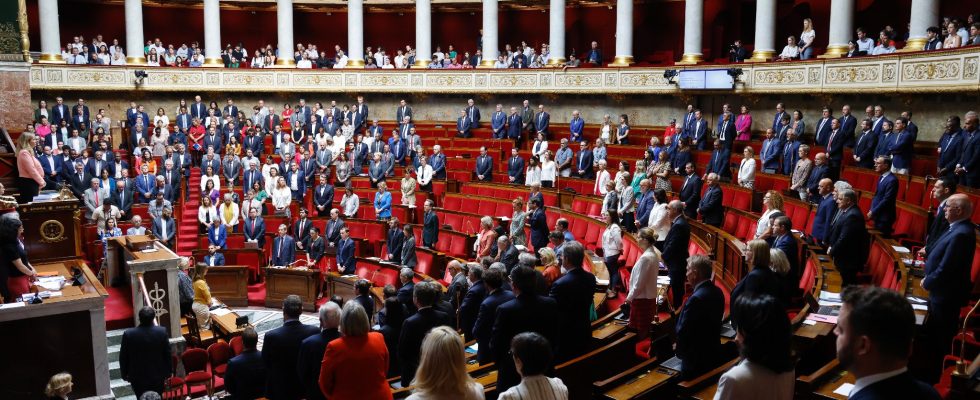On June 8, a tragedy moved the whole of France. A man, Abdalmasih H., stabbed six people in Annecy, including four children. Absolute horror. The strings of chance caused this tragedy to take place on the very day when, in the National Assembly, we were debating the Liot group’s bill on pension reform. A minute of silence was immediately observed. The sacred union did not last long. The event has inspired some with the urgency of comment. The traces they have left through their public statements or on social networks are embarrassing for them, but constitute valuable data for anyone interested in how collective beliefs are organized and escape us.
The story as it unfolded in the media and social networks looks a bit like this: around 9:40 a.m., a man wearing a turban, wearing dark glasses and armed with a knife is seen in the gardens of Europe, a park in Annecy frequented by many families. Within a minute, the police received three alert calls. Meanwhile, a young man bravely tries to stop the assailant with his backpack. The man with the knife is neutralized five minutes later by the police. We then discover that the assailant is a Syrian refugee, and this information triggers an avalanche of ill-advised speeches. One of the most notable, because it comes from the president of the Republicans, is that of Eric Ciotti, who, in the room of the Four Columns of the National Assembly, evokes pell-mell “a profile that does not leave anyone indifferent” and “a terrorist act”. Guillaume Peltier, the vice-president of Reconquête!, is not left out, since he sees in it the sad manifestation of “conquering Islamism”.
We understand that the “refugee” and “Syrian” markers activated the interpretative software of these political actors, but it is then that a singular narrative counterpoint occurs: we learn that Abdalmasih H. is a Christian, and that before to perpetrate his criminal acts he evoked, according to several witnesses, the name of Jesus. This is unfortunate for political families who have often shown their solidarity for the persecuted Christians of the East. When the real does not want to tell the story that is expected of it, the suspicious mechanism is frequently set in motion. Thus, Eric Zemmour did know on the CNews antenna that he was not convinced by the religious identity of the assailant, despite many concordant facts and the conclusions of the investigators.
inter
But that’s not all… The intervention of Henri, the courageous young man with a backpack, also arouses all suspicion. It is true that we discover a profile that does not appeal, this time, to the other political side: he is a Christian, and continues a tour of France of the great cathedrals. We would have preferred that the real offer something else, no doubt. Ordinary conspiracy theorists, on the other hand, are setting up their usual circus: some claim that Henry’s brother – unless it’s his father – is in charge of the cybersecurity division in a large company, one of the directors of which is not would be other… than Edouard Philippe, with this conclusion, now classic of the conspiracy: “The bigger it is, the more it passes.”
Others point out that there were too many cameras on site, that help arrived very quickly, that Henri was carrying not one but two backpacks (and see this as an anomaly worthy of interest). The conclusion soon arrives: all this is “phony”, it is a “secret service fabrication from scratch”.
Once again, the argumentative millefeuille is in place and illustrates the cacophony that now accompanies any event that arouses our collective attention. And if the interpretation of this drama was simply premature? Even the implication of psychopathological elements is not certain, since, if Abdalmasih H was transferred to a psychiatric unit, the expert who examined him at first instance did not reveal any “frank delusional element”. In short, it seems that the best way to behave for a public figure is sometimes to remain silent, except of course to show his pain and solidarity. There may be greatness in suspending judgment, but it will always come up against that uneasy question, “Who will notice my virtuous silence?”
* Gérald Bronner is a sociologist and professor at the Sorbonne University
